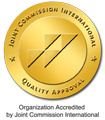One out of 10 diagnosed cases of Alzheimer's are associated with other dementias
Torrevieja / Murcia, September 20th, 2018. It is estimated that in Spain 10% of dementia sufferersare over 70 years of age, with Alzheimer's disease being the most frequent. This is a degenerative brain pathology that impairs cognitive abilities, especially memory. There is no cure - at the moment, but there is a treatment that benefits these patients and that delays its evolution.
Dr. Sandra Rodríguez Barceló,Specialist in Neurosurgery and responsible for the Unit of Memory and Cognitive Disorders of the Hospital Quirónsalud Murciaand Torrevieja,stresses the importance of being meticulous in the diagnosis of patients with dementia. It is estimated that 10% of people who are initially diagnosed with Alzheimer's disease have chronic hydrocephalus associated in adults. 100% of patients diagnosed with Alzheimer's disease would benefit from a multidisciplinary assessment that would reveal the existence of other diseases with a very different prognosis, such as chronic hydrocephalus in adults, for which an effective treatment exists and in some cases are associated with Alzheimer's.
A differential diagnosis should also be established with those cognitive disorders that appear as a consequence of other diseases, such as strokes, infections or metabolic alterations that have a specific approach and a very different evolution.
The specialists of the Unit of Memory and Cognitive Disorders of Hospital Quirónsalud Murcia intend to provide specialized care to patients with Alzheimer's disease, establishing guidelines for medical treatment and neurocognitive rehabilitation adjusted to each patient, in order to delay the process and maintain patient independence for as long as possible.
Is it just Alzheimer's? Should we rule out other diseases?
From a practical point of view, between 10% and 20% of dementias have a reversible cause, including chronic adult hydrocephalus, which may also appear in the course of Alzheimer's
Hydrocephalus is the excessive accumulation of cerebrospinal fluid in the brain.
This accumulation causes the spaces of the brain that are called ventricles to dilate producing an inflammation that presses the brain tissue harms it and is usually confused with Alzheimer's by the similarity of its symptoms.






















